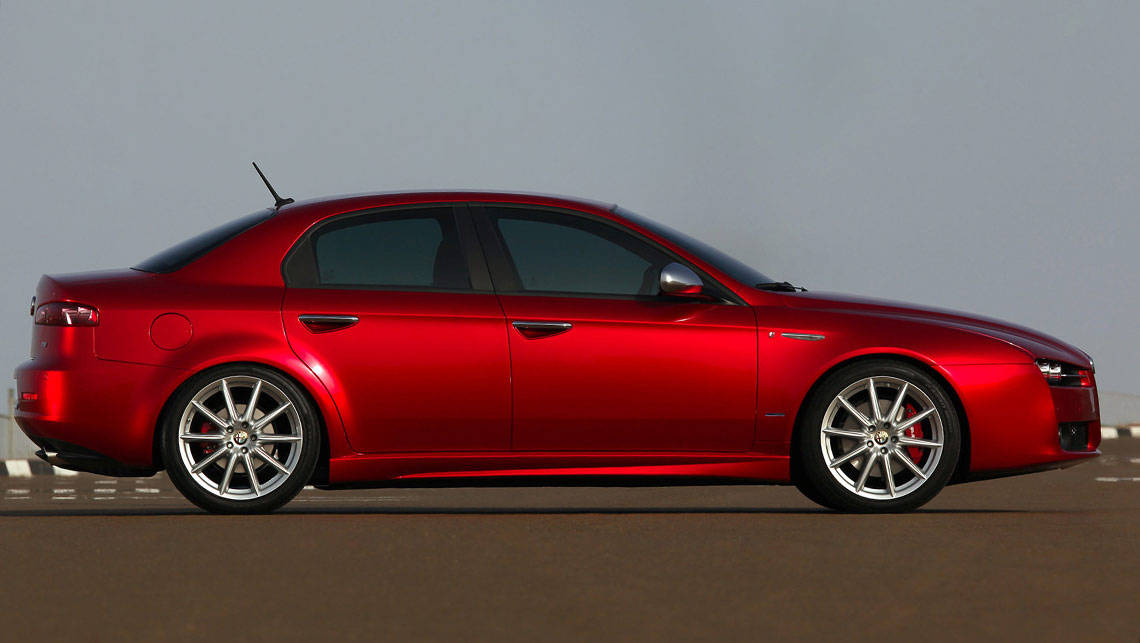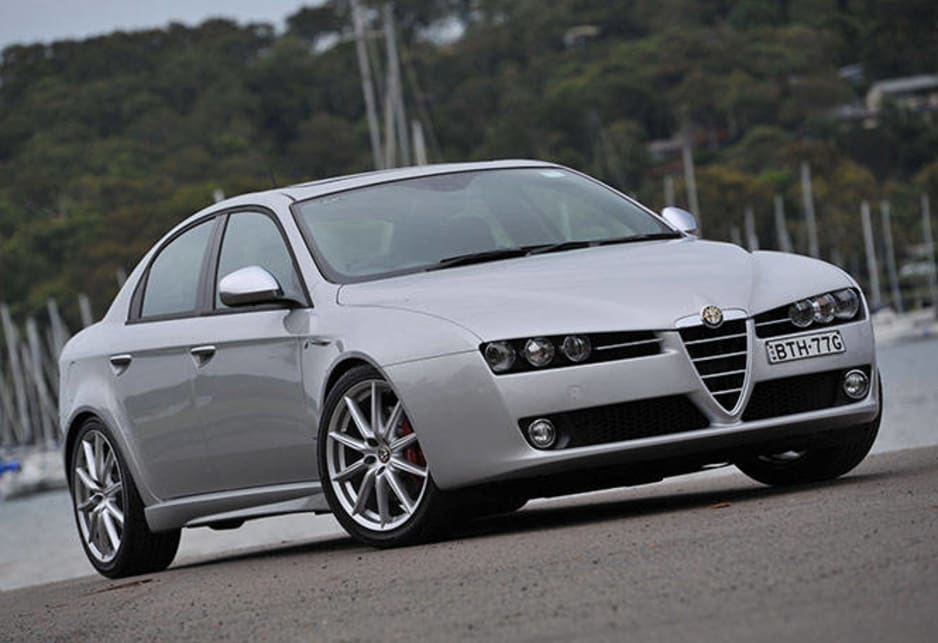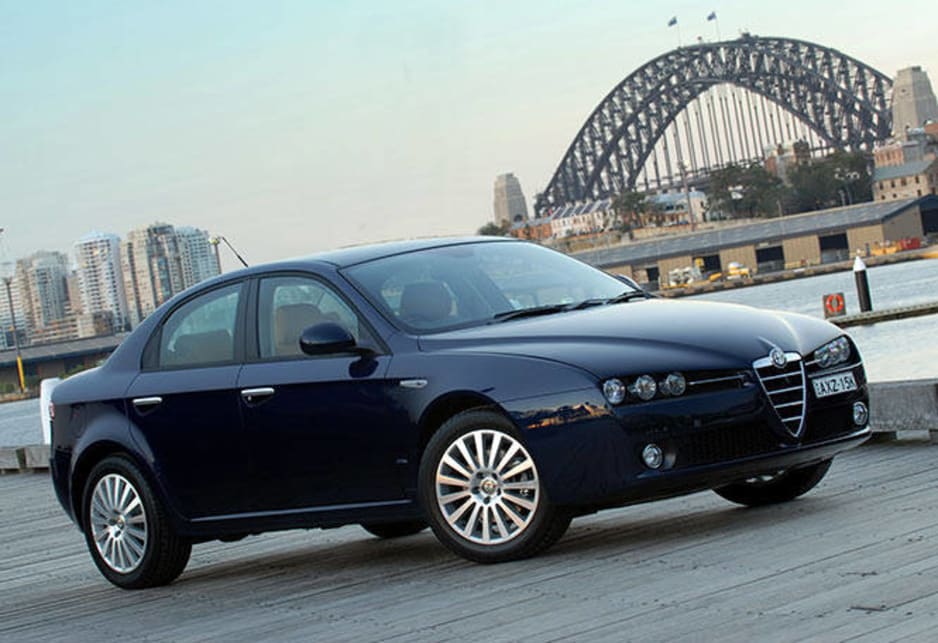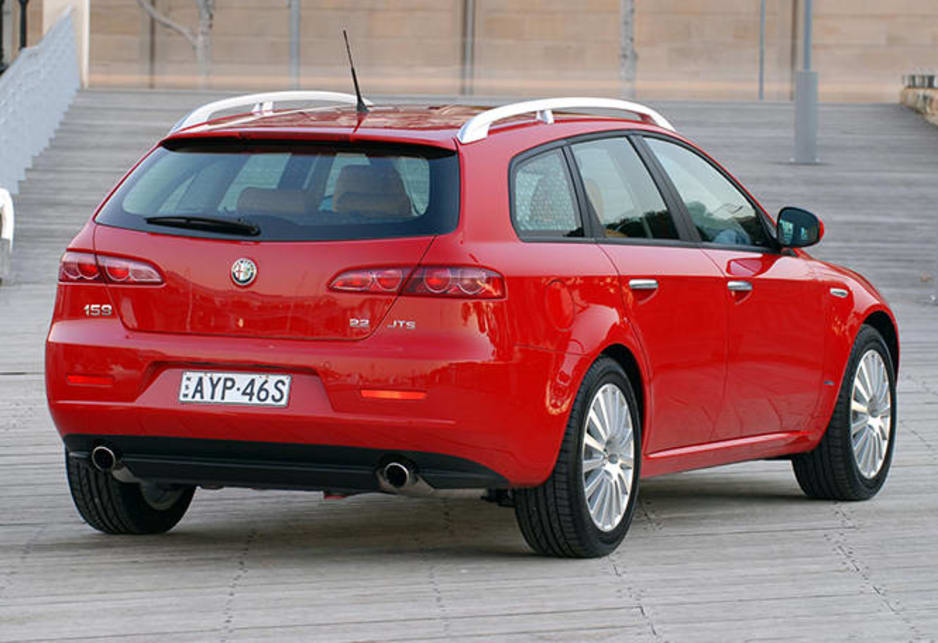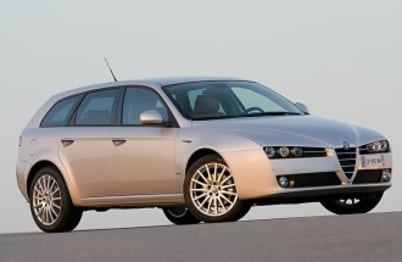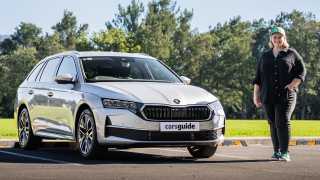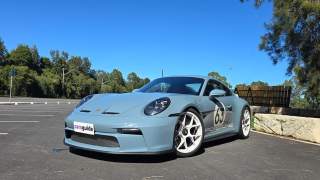
Used Alfa Romeo 159 review: 2006-2012
- Alfa Romeo 159
- Alfa Romeo 159 2006
- Alfa Romeo 159 2007
- Alfa Romeo 159 2008
- Alfa Romeo 159 2009
- Alfa Romeo 159 2010
- Alfa Romeo 159 2011
- Alfa Romeo 159 2012
- Alfa Romeo 159 Reviews
- Alfa Romeo Reviews
- Alfa Romeo Sedan Range
- Alfa Romeo Wagon Range
- Sedan
- Wagon
- Alfa Romeo
- Used Car Reviews
What we like
- Stylish
- Dynamic
- Personality
What we don't
- Stiff competiton from other mid-size rivals
- Thirsty when pushed
- Alfa parts pricing
What we like
- Stylish
- Dynamic
- Personality
What we don't
- Stiff competiton from other mid-size rivals
- Thirsty when pushed
- Alfa parts pricing
Alfa Romeo is undergoing a major resurgence in Australia, one that began midway through 2012 when the Italian factory took control here; previously a private importer did that job. The number of dealerships is expanding rapidly and spare parts and servicing are freeing up as more mechanics are being trained in the marque.
Alfa Romeo 159 is a stunning looking sedan with its Italian flair penned by the famed Giugiaro. The frontal shape is one of the best ever, even by Alfa’s high standards, and owners say they are continually being praised by bystanders who see their cars. The Alfa 159 is significantly bigger than the Alfa Romeo 156 it replaced (there was no 157 or 158) when launched in Australia in June 2006. It has a substantially longer wheelbase and is quite a bit wider.
However, the packaging efficiency doesn’t take full advantage of the extra length and there’s not as much interior space as you might expect. If four adults are travelling together those in the front will have to seriously compromise on who gets what in the way of legroom. Some front-seat foot width is stolen by a wide centre console.
On the other hand, the luggage capacity of the Alfa 159 is considerably larger than that of the 156. The luggage space in the station wagon – Sportwagon in Alfa-speak – has decent cargo space, though its more in the boutique wagon class than the Volvo-practical class. Road holding is typically Italian and the Alfa 159 grips the road with plenty of enthusiasm. It sends definite messages through the steering wheel so the driver knows exactly what is happening.
Though it’s a relatively large car, the 159 is happy to change direction mid corner if asked to do so. Some may feel the ride a bit on the jiggly side on moderate to rough roads, but keen drivers will love the firm feel and the overall willingness of this Alfa. Perhaps check by taking potential passengers along during your test drive of the 159 and finding some roughish roads to run over. Australian imports of the Alfa Romeo 159 began in June 2006, the cars were rather overpriced by the standards of the day, but sold moderately well as they appealed to enthusiastic lover of all things Italian.
Petrol power initially came from a 2.2-litre four-cylinder or a 3.2-litre V6. Both are willing to rev in a very Italian manner, even though the V6 is actually an Australian engine, being built by Holden and exported to Alfa in Europe. Petrols tend to be the choice of keen Australia drivers because there’s less weight over the front wheels with the petrols than the diesels. Meaning there’s an even better 'chassis' feel.
December 2010 saw the introduction of new-generation petrol engines, now turbocharged and having the famed Alfa Romeo capacity of 1750cc. These are lovely units to sit behind and once they are past the turbo lag stage are beautifully responsive. Alfa Romeo was, surprisingly, an early adopter of turbo-diesel engines in Australia, with four and five-cylinder units being imported from the start. A big 2.4-litre diesel produces a strong 400 Newton metres of torque. The smaller turbo-diesel displaces 1.9 litres and still provides reasonable performance.
Six-speed manual gearboxes are relatively common for a car in this class, particular beside the diesel engines. Sadly, most Australians prefer automatic transmissions. Some of these are Alfa Romeo’s self-shifting six-speed SelesSpeed manuals, which some drivers find irritating in their jerky actions in lower gears, others are happy enough with them. Conventional six-speed autos are a much better proposition.
The bad old days of poor quality control at Alfa Romeo are long gone and the 159 is generally as good as any other European car, though not to the very high standards of Japanese brands. Alfa Romeo 159 was discontinued in 2011 but the last Australian imports weren’t sold until mid 2012. Down the track it’s likely you’re going to be offered a trade-in price based on the date of manufacture, not on the date of first registration. So be wary.
Insurance costs tend to vary considerably from company to company, probably because of their varied experiences with crash claims from enthusiastic drivers. So it’s worth spending time shopping around, as always be careful that your doing apples-with-apples comparisons.
WHAT TO LOOK FOR
An Alfa Romeo with a full service history from an authorised dealer, or at least an established expert on the marque, is preferable to one that’s been neglected, or worked on by an eager amateur. Have a complete look over the whole car for signs of crash repairs, Alfa Romeos are sometimes owned by would-be racing drivers, some of whom may not be as good as they think. Heavy build up of brake dust on the inside of the wheels is a sign of hard driving.
Panels with ripples – look at them lengthways in good strong light to see them - are a giveaway. As are paint colours that don’t match from panel to panel. Check for tiny spots of overspray on unpainted surfaces such as badges and glass. The Selespeed automated manual can have a mind of its own at times but if you feel it’s holding onto gears for too long, or is harsh in its changes have it checked out by a specialist.
A torque convertor automatic transmission should have changes that are all but imperceptible, though there may be some roughness on big-throttle driving. Check the engine starts easily and idles smoothly. The V6 will be better than a four-cylinder in its idle quality.
CAR BUYING TIP
Spend just as much time researching finance and insurance as you do on with the cars themselves.
Pricing
| Year | Price From | Price To |
|---|---|---|
| 2012 | $6,160 | $14,410 |
| 2011 | $5,830 | $13,530 |
| 2010 | $5,060 | $12,320 |
| 2009 | $4,070 | $10,010 |
| 2008 | $4,070 | $10,010 |
| 2007 | $4,070 | $9,790 |
| 2006 | $4,070 | $9,460 |
Pricing guides
Range and Specs
| Vehicle | Specs | Price* | |
|---|---|---|---|
| 2.4 JTD | 2.4L, Diesel, 6 SP MAN | $4,730 – 6,930 | 2006 Alfa Romeo 159 2006 2.4 JTD Pricing and Specs |
| Sportwagon 2.4 JTD | 2.4L, Diesel, 6 SP MAN | $4,950 – 7,260 | 2006 Alfa Romeo 159 2006 Sportwagon 2.4 JTD Pricing and Specs |
| 2.2 JTS | 2.2L, PULP, 6 SP MAN | $4,070 – 6,050 | 2006 Alfa Romeo 159 2006 2.2 JTS Pricing and Specs |
| Sportwagon 2.2 JTS | 2.2L, PULP, 6 SP MAN | $4,290 – 6,380 | 2006 Alfa Romeo 159 2006 Sportwagon 2.2 JTS Pricing and Specs |
$4,070
Lowest price, based on third party pricing data


